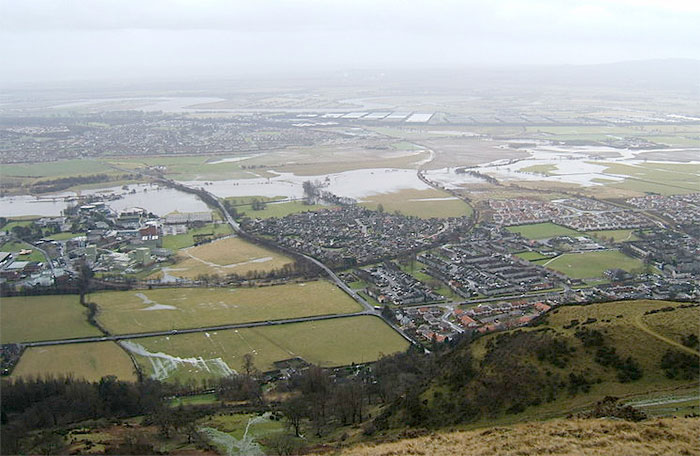
Natural Resources Wales (NRW)’ Report, launched recently, is the first of its kind in Wales looking at the work authorities are conducting across Wales to reduce the risk of flooding. Going forward it is essential that NRW and the Welsh Government utilise the local knowledge and experience of farmers and other land managers to reduce the risk of flooding to rural communities, says NFU Cymru and Association of Drainage Authorities (ADA).
The NRW’s Report highlights the positive work of Caldicot and Wentlooge Levels Internal Drainage Board to manage water levels across its district for communities, agricultural and the natural environment. It is one of three Internal Drainage Boards (IDB) in Wales soon to be abolished and absorbed into NRW as of next year. The local knowledge that has ensured the careful management of water levels in this drainage network for generations must not be lost with them.
NFU Cymru and the Association of Drainage Authorities are therefore calling for the creation of non-executive committees of local landowners, local authority members and representatives of the broader stakeholder community in all of Wales’ Internal Drainage Districts. Such bodies could meet regularly and be responsible for recommending future works and programmes to NRW for all water level management and flood defence work in areas such as the Gwent levels, lower Wye Valley, Powys rivers and lowlands around the northwest coast of Wales.
The Internal Drainage Districts around the North West Coast would also benefit from more local farmer engagement by NRW in decision making and using more local contractors to carry out the work so that it is done in a more timely fashion.
Such local water management experience would ensure good practice in maintaining drainage and mitigating flood risk, as well as ensuring excellence in conservation practice.
Speaking from Monmouthshire County Show today, Nigel Bowyer, Monmouthshire NFU Cymru County Chairman said, “Lowlands such as the Gwent Levels need careful water management to help them flourish for agriculture, the environment and the communities that live there. Farmers have provided local knowledge to Internal Drainage Boards for generations and their expertise must not be lost in the future. That is why we want to ensure that farmers continue to get a voice in the management of these Districts following the dissolution of Internal Drainage Boards in Wales next year.”
Henry Cator, Chairman of ADA said, “ADA welcomes the Report’s section on maintenance and would emphasise its importance in maintaining appropriate water levels for the benefit of not only the existing people, businesses, agriculture but also allowing new development to take place. New houses, business parks, transport cannot be built without well designed water level management and drainage to minimise their flood risk.”
Jacqui Murray, Internal Drainage Board Programme Manager for Natural Resources Wales, said:
“These areas are important as agricultural land, they reduce the risk of flooding in lowland areas for homes, businesses and farms and provide a fantastic habitat for wildlife.
“We all want to see these areas managed properly and local knowledge is fundamental to this. We have to balance the needs of everyone within the internal drainage districts and work together to provide best value for money.
“Meeting with farmers and other rate and levy payers, is helping us understand their concerns both present and for the future. I would like to thank those farmers who have got actively involved in our constructive discussions.”
What Natural Resources Wales (NRW) is doing:
• NRW has been working over recent months with the three internal drainage boards to design forums with local landowners and stakeholders that build upon their valued work and local knowledge and experience.
• NRW is also working with farmers and others in North Wales, to identify opportunities where these areas could be managed more effectively in the future.
